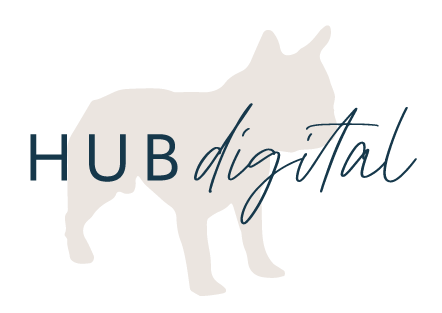5 SEO Myths You May Be Wasting Your Time On
There is a TON of misinformation out there about digital marketing in general, and SEO in particular. Because Search Engine Optimization is something that a lot of people don't understand (or choose not), are overwhelmed by, or can't keep up with, it's often something that is easily misrepresented by "experts".
People also tend to get into habits with how they manage their SEO, and don’t update their techniques as things change. You’d be surprised how many people are still practicing SEO techniques that have been ineffective for years.
Don't worry, today Hub Digital has your back. We're breaking down the 5 biggest SEO myths that are still floating around in cyber space and are giving you permission to STOP waisting your time on them!
1. WWW vs non-WWW is important.
Every website owner has the decision to make their website URL “www” or to completely lose the “www”all together. While there are some technical differences in the 2, Google has officially stated that there are NO SEO benefits of one over the other. The important thing to remember is that once you choose which one you want, stay consistent with that version. You can choose your preference in Google Search Console. What IS important is having a secure site version (https) available and prevalent over your traditional non-secure version (http). In 2018 that began to play a huge role in ranking. Learn more about that here.
2. You have to fill out your Meta Keywords
If you’ve looked at the backend of your site to do your Meta Titles and Meta Descriptions you may have noticed a spot to put in Meta Keywords. These used to be extremely important for SEO and many SEO “experts” still think they hold weight. However, in recent updates Google has announced that because of keyword stuffing (which is when a website is filled with keywords that may or may not relate to the page) that meta keywords now have absolutely NO bearing on Google search rankings. Like I said before, you can fill them out if you want, but since they don’t make a difference, what’s the point?
3. URL's should be keyword rich
There is still debate among many SEO experts about having a URL with a lot of keywords in it. Here’s my take - creating long, keyword rich URLs may actually hurt, instead of help your brand. Recent studies have shown that Google is consistently ranking long URLs lower in search. Recent analysis shows that the top 10 results on Google consistently have URLs with less than 37 characters. Also, after analyzing a random selection of 30,000 domains they found that those with a keyword in their URL ranked NO better than those that didn’t.* On top of that, really long URLs can be difficult for people to remember. Moral of the story is, if it makes sense to throw in a keyword go ahead, but keep it short, sweet and easy to remember. *Stats courtesy of Search Metrics
4. 301 redirects aren't SEO friendly
This one can get a little technical and confusing so bear with me a little. When someone types in a URL in the top bar, it takes them to a website. It is up to us to tell the internet what site we want it to take someone to when they type in our URL. There are a few ways to do that. The 2 most popular are Domain Mapping and 301 Redirects. Domain Mapping is when you purchase a URL from an outside outlet (like GoDaddy) and you want it to link fully to your site. Through this process you are changing the DNS and hosting settings so your URL is directly associated with your website. This is telling Google that this is your MAIN URL for your site and the one that should get all the juice. However, sometimes you may want to add an additional URL or change the one that is linking to your site. In order to achieve this you can 301 redirect the extra, or new, URL. A 301 redirect is telling Google that you want this URL to link to your website permanently. While it will still bring traffic to your website, you’ll see that the URL bar will change to your mapped URL once they get to the site. Because 301 redirected URL’s aren’t mapped, and don’t carry as much SEO juice as mapped URLs, many people think they aren’t SEO friendly. However, they actually can be a great thing for your site. If you map multiple URLs to your website they end up all competing with each other in SEO, essentially dropping you in search because not one URL will stand out. This is because your URLs carry SEO weight and can help in search (like if you’ve owned the URL a long time). By 301 redirecting the extra ones, you can still use them to point to your website, but won’t be taking away from your main URL’s SEO juice. Another good use of them is if you decide to change your main URL to a new one. By mapping your new URL and 301 redirecting your old one, you’ll actually transfer about 90 - 95% of the SEO juice of the old one to the new one.
5. You should use Google Authorship
This one’s pretty easy, Google Authorship doesn’t exist anymore, so don’t even bother trying. Google Authorship was an experiment by Google trying to link content you create with your Google+ profile. After multiple attempts it never caught on, and Google shut it down. You may still see listed in some outdated SEO classes or articles. If you do, just ignore it and move on.
Want even more tips, tricks and marketing advice? Check out The Hub!
